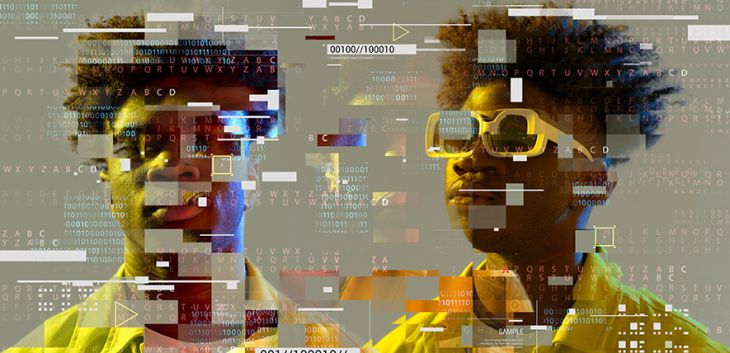In pausing to think before making an important decision, we may imagine the potential outcomes of different choices we could make. While this ‘mental simulation’ is central to how we plan and make decisions in everyday life, how the brain works to accomplish this is not well understood.
An international team of scientists has now uncovered neural mechanisms used in planning. Their results, published in the journal Nature Neuroscience, suggest that an interplay between the brain’s prefrontal cortex and hippocampus allows us to imagine future outcomes to guide our decisions.
“The prefrontal cortex acts as a ‘simulator,’ mentally testing out possible actions using a cognitive map stored in the hippocampus,” said co-author Marcelo Mattar from New York University. “This research sheds light on the neural and cognitive mechanisms of planning—a core component of human and animal intelligence. A deeper understanding of these brain mechanisms could ultimately improve the treatment of disorders affecting decision-making abilities.”
The roles of both the prefrontal cortex—used in planning and decision-making—and hippocampus—used in memory formation and storage—have long been established. However, their specific duties in deliberative decision-making, which are the types of decisions that require us to think before acting, are less clear.
To illuminate the neural mechanisms of planning, Mattar and his colleagues—Kristopher Jensen from University College London and Professor Guillaume Hennequin from Cambridge’s Department of Engineering —developed a computational model to predict brain activity during planning. They then analysed data from both humans and rats to confirm the validity of the model—a recurrent neural network (RNN), which learns patterns based on incoming information.
The model took into account existing knowledge of planning and added new layers of complexity, including ‘imagined actions,’ thereby capturing how decision-making involves weighing the impact of potential choices—similar to how a chess player envisions sequences of moves before committing to one. These mental simulations of potential futures, modelled as interactions between the prefrontal cortex and hippocampus, enable us to rapidly adapt to new environments, such as taking a detour after finding a road is blocked.
The scientists validated this computational model using both behavioural and neural data. To assess the model’s ability to predict behaviour, the scientists conducted an experiment measuring how humans navigated an online maze on a computer screen and how long they had to think before each step.
To validate the model’s predictions about the role of the hippocampus in planning, they analysed neural recordings from rodents navigating a physical maze configured in the same way as in the human experiment. By giving a similar task to humans and rats, the researchers could draw parallels between the behavioural and neural data—an innovative aspect of this research.
“Allowing neural networks to decide for themselves when to 'pause and think' was a great idea, and it was surprising to see that in situations where humans spend time pondering what to do next, so do these neural networks,” said Hennequin.
The experimental results were consistent with the computational model, showing an intricate interaction between the prefrontal cortex and hippocampus. In the human experiments, participants’ brain activity reflected more time thinking before acting in navigating the maze. In the experiments with laboratory rats, the animals’ neural responses in moving through the maze resembled the model’s simulations.
“Overall, this work provides foundational knowledge on how these brain circuits enable us to think before we act in order to make better decisions,” said Mattar. “In addition, a method in which both human and animal experimental participants and RNNs were all trained to perform the same task offers an innovative and foundational way to gain insights into behaviours.”
“This new framework will enable systematic studies of thinking at the neural level,” said Hennequin. “This will require a concerted effort from neurophysiologists and theorists, and I'm excited about the discoveries that lie ahead.”
Reference:
Kristopher T. Jensen, Guillaume Hennequin & Marcelo G. Mattar. ‘A recurrent network model of planning explains hippocampal replay and human behavior.’ Nature Neuroscience (2024). DOI: 10.1038/s41593-024-01675-7
Adapted from an NYU press release.















